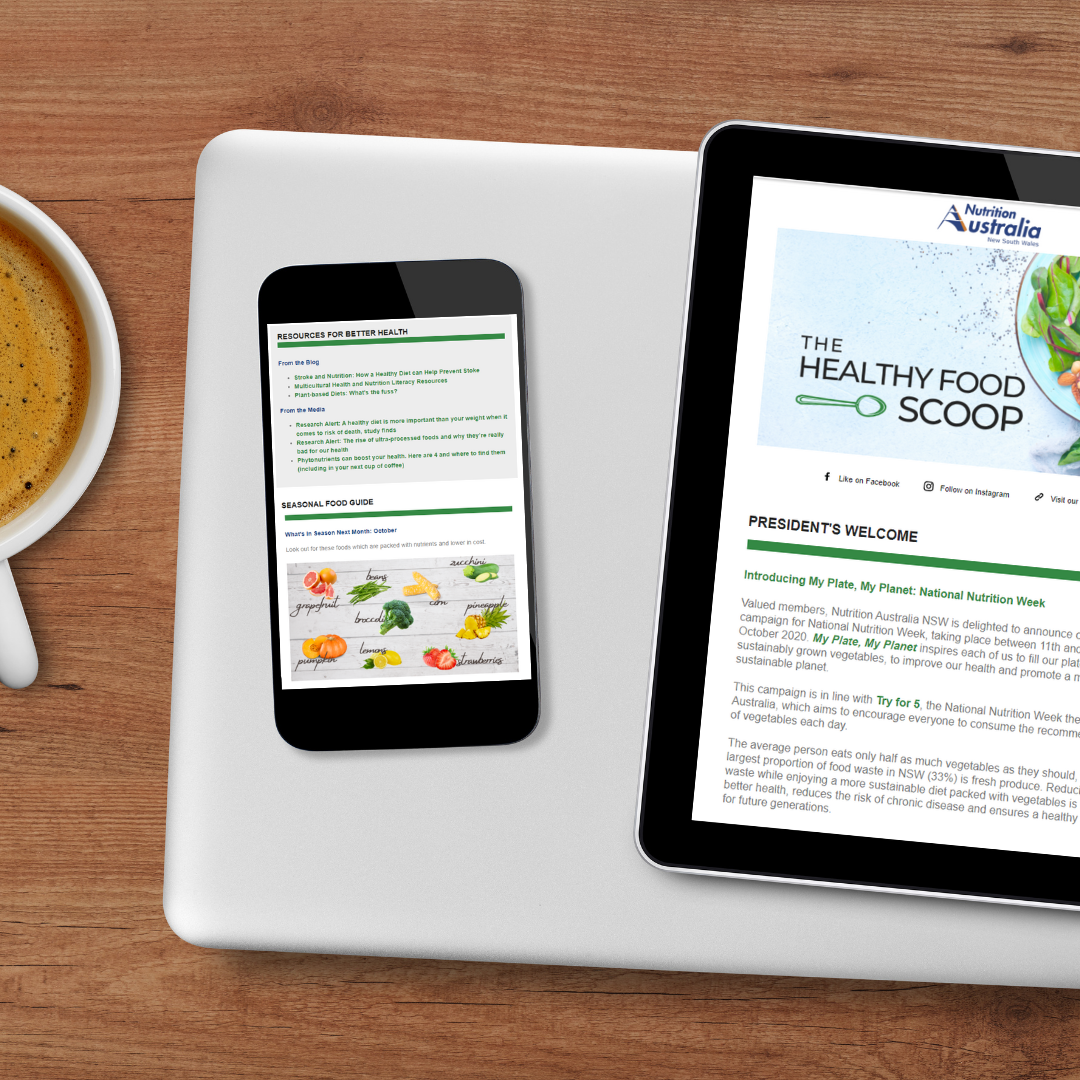Cancer and nutrition: What’s the connection?
World Cancer Day is on February 4 2021.
Did you know that more than one third of cancer deaths can be prevented and another third can be cured if detected early and treated properly? World Cancer Day is on 4th February 2021. The aim is to raise awareness worldwide, improve education and encourage governments and individuals to take action to reduce preventable cancer deaths.
What is cancer?
Cancer occurs when abnormal cells grow in an uncontrolled manner. These abnormal cells can damage or invade surrounding tissues, or spread to other parts of the body, causing further damage.
Role of the Dietitian
Lifestyle choices can influence your risk of developing cancer. Accredited Practising Dietitians (APDs) are nutrition experts who can provide evidence-based, individualised nutrition advice to reduce cancer risk. APDs also play an important role in cancer treatment. They apply medical nutrition therapy which focuses on managing symptoms, maintaining weight and ensuring optimal nutrition status during treatment.
World Cancer Research Fund Cancer Prevention Recommendations
The World Cancer Research Fund published a list of recommendations to help people reduce their risk of developing cancer:
1. Maintain a healthy weight
One of the most important ways to reduce your risk of cancer is to maintain a healthy weight throughout life and avoid weight gain in adult life.
2. Be physically active
To reduce your risk of cancer, you should aim to spend more time moving and less time sitting. The World Health Organisation recommends that adults do at least 150 minutes of moderate physical activity or at least 75 minutes of vigorous physical activity per week. Examples of moderate intensity activities include walking, swimming, household chores and gardening, while vigorous intensity activities include running, fast swimming and team sports.
3. Eat a diet rich in wholegrains, vegetables, fruit, and beans
Making wholegrains, vegetables, fruit and legumes such as beans and lentils a large part of your usual diet can help protect against certain cancers. This is why the Australian Guide to Healthy Eating shows the proportions and examples of foods in each of the five food groups. Adults should eat at least 5 serves of vegetables and 2 serves of fruit each day.
1 serve of vegetables =
- ½ cup cooked non-starchy vegetables such as carrot, broccoli, spinach or zucchini
- 1 cup of leafy green salad vegetables
- ½ cup of legumes such as lentils and chickpeas
1 serve of fruit =
- 1 piece of medium-sized fruit such as apple, orange, banana or pear
- 2 pieces of small-sized fruit such as plums or kiwi-fruit
- 1 cup of fruit salad or canned fruit
The Cancer Council recommends that people eat at least 4 serves of grains per day, with at least half of these as wholegrain or wholemeal varieties.
1 serve of grains =
- 1 slice of bread
- ½ cup cooked rice, pasta or noodles
- ¼ cup muesli
4. Limit consumption of ‘fast foods’ and other processed foods high in fat, starches or sugars.
‘Fast foods’ and other processed foods are readily available in our modern society. They tend to be energy dense and are often consumed frequently and in excessive portions. Limiting these foods helps control calorie intake and maintain a healthy weight.
5. Limit consumption of red and processed meat
Meat can be an important source of valuable nutrients such as protein, iron, zinc and vitamin B12. However, it is recommended that you eat only moderate amounts of red meat, such as beef, pork and lamb, and eat little or no processed meat such as salami and bacon. This is because consumption of red and processed meat has been linked to colorectal cancer. Processed meats are also often high in salt, which can increase the risk of high blood pressure and heart disease. If you eat red meat, aim for lean rather than fatty cuts and try to limit it to no more than 350 grams per week cooked weight.
6. Limit consumption of sugary drinks
Consuming sugar sweetened drinks such as soft drinks can lead to weight gain, particularly when consumed frequently or in large amounts. There is strong evidence that having excess body fat can increase the risk of developing many cancers. It is best to drink water or other unsweetened drinks such as tea and coffee without added sugar to maintain hydration.
7. Limit alcohol consumption
For cancer prevention, it is best not to drink alcohol as there is strong evidence that consumption of alcohol is associated with many cancers.
8. Do not use supplements for cancer prevention
You should aim to meet your nutritional requirements through food alone. Supplementation is important in some situations, for example folic acid for women who are or may become pregnant. However, high-dose dietary supplements are not recommended for the prevention of cancer. For the majority of people, consuming the right foods and drinks is more likely to reduce the risk of cancer than dietary supplements.
Get Involved
You can get involved by spreading the message of World Cancer Day to your family, friends, colleagues, community, media and governments. The goal is to get as many people as possible to talk and learn about cancer, and reduce the number of preventable cancer deaths.
Latest blog posts
Join our community
Be the first to hear about our events, delicious recipes, and healthy eating tips with our monthly online mag, The Healthy Food Scoop.





